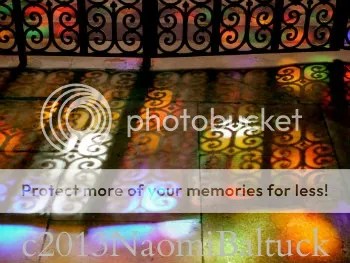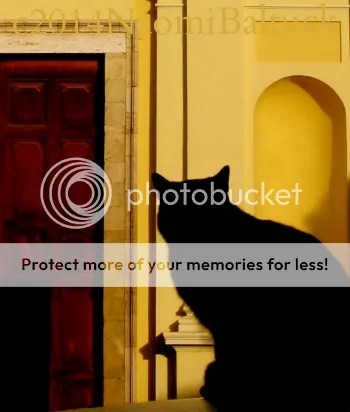Two sets of sisters.
 All images and words copyright Naomi Baltuck
All images and words copyright Naomi Baltuck
Click here for more interpretations of Cee’s Fun Foto Challenge: Two.
Life From a Writer's POV
Two sets of sisters.
 All images and words copyright Naomi Baltuck
All images and words copyright Naomi Baltuck
Click here for more interpretations of Cee’s Fun Foto Challenge: Two.
People find the light in their life in so many ways and places. It can be as easy as turning on a switch.

Some find all the light they need in a sunset…

…or a moonrise.

Others find illumination in a church…

…a synagogue…

…a mosque…

…or a library.

Sacred is a place that lights up your heart.

It isn’t always easy to find…

Some look for it in food…

…at the bottom of a wine glass…

…or through yoga.

Some light up with the joy and anticipation of adventure.

And what constitutes an adventure is very personal.

Sometimes light comes from the joy of creation in all of its many forms…






Everyone’s light shines through differently. To each his own.






It is there.

It is there.

It is there.

All words and images copyright Naomi Baltuck.
Click here for more interpretations of The Weekly Photo Challenge: Shine.
“All I ask is a tall ship and a star to steer her by…”

My mother and her sister Loena were best friends. Wherever Loena went, she would sing or hum quietly to herself. My mother used to introduce her to friends saying, “This is my sister Loena. Don’t mind her; she hums.”

Mom was the one who used to bust Aunt Loena out of Detroit for road trips. Sometimes to Washington, D.C. to visit my sister Miriam, to Maine to see my sister Constance, or to see me and my siblings in Seattle, especially if the Tigers were scheduled to play the Mariners.

Driving cross country to attend my wedding, they made a late-night stop at a hamburger joint in Iowa. They were laughing so hard the young man behind the counter came to their table and said, “Ladies, I don’t know where you’re going, but I want to come with you.”
Less than a year after Mom died, my first baby was born. It was a wonder-full time, if bittersweet. Aunt Loena’s visit was the next best thing to seeing my mom holding my baby in her arms. I felt my mother’s presence, watching, smiling, loving.

But it was hard for Aunt Loena to get away. She spent two decades housebound while caring for her mother-in-law, and then her husband. No one blamed him for his frustration, but he yelled at everyone who came to visit or offer aid, and fired everyone my aunt hired to help with housework and eldercare. It was emotionally isolating and physically exhausting. She never complained, and joked that at least her medical appointments for heart trouble, cataract surgery, and blood transfusions got her out of the house. Like my mother, she knew how to look for the bright spots.
The 911 response team knew her by name, as she had to call whenever her husband fell out of the recliner where he slept. It was time for a nursing home. She visited him twice a day, until she caught meningitis. Her doctors didn’t think she’d survive. I flew to Detroit to say goodbye, but Aunt Loena is a two-time cancer survivor, who has come back from the brink so many times she makes Rasputin look like a weenie. It was a wake-up call, however. She checked out of the hospital with a bucket list. My aunt is 86, anemic, subject to dizzy spells and shortness of breath. Oh, yes, and always up for an adventure, so long as it is wheelchair accessible.

Aunt Loena with my sister Lee and my son Elijah
Our first adventure was a trip to Seattle. We knew she had a great time, because wherever we went, she hummed to herself like a purring kitten. That trip was just a warm-up for her dream trip to New York City.


Aunt Loena in Central Park with Bea and me.
When it was time to leave New York and go our separate ways, it was too sad to say goodbye, so instead we said, “Where to next?” She’d always wanted to go the Shakespeare Festival in Stratford, Ontario. So that’s what we did. My son Eli flew in from college in Maine, I flew from Seattle, and my sister Lee joined us from the Upper Peninsula of Michigan.

We went in October, to take in the fall colors as well as the plays.

I chose our motel for its name.

In Stratford I discovered the secret to longevity–a nightly dose of Miss Vicky’s Salt and Vinegar Potato Chips! Aunt Loena is a teetotaler, but she’s not afraid of a little salt and grease. Got sugar? Bring it on!

Each time we part, I fear another long drive or a cross country flight will prove too much. We make a date and look forward to it, but I always check before I make plane reservations. “You’re sure?” And she always says, “Oh, yes. As long as I’m sitting down, it’s almost just the same as sitting at home.”
We promised to bring her to Seattle for fish and chips this summer, but Lee couldn’t make it. I asked my friend Monica, also a Detroiter, if she’d consider escorting Aunt Loena. The next morning I got her reply– she would be delighted! What a gift to us all! We couldn’t have pulled it off without her. Monica and Aunt Loena had been hearing about each other for years, and felt like they already knew each other. We kicked off a week-long PJ party by attending a performance of Cole Porter’s “Anything Goes.” We also enjoyed Teatro Zinzanni’s very silly but impressive dinner theater show, “Gangsters of Love.”

Aunt Loena made her famous egg salad sandwiches. Years ago, when we all drove to D.C. to visit our sister Miriam, we weren’t out of Detroit yet when Mom said, “Who’s ready for an egg salad sandwich?” It was 10am, but so what? We were ready for another one by lunchtime.

We picnicked at Green Lake–egg salad sandwiches, my brother Lew’s homemade cookies, and Salt and Vinegar Potato Chips. We couldn’t get to a picnic table, because we didn’t have an all-terrain wheelchair, but from our park bench we had a gorgeous view of the lake.

I would love to take Aunt Loena to Hawaii or Europe; even she feels it might be too far. But her eyes lit up when she said church friends had gone to a casino, and she thought it might be fun to try her luck just once–if there was a smoke-free one with wheelchair access. I don’t know anything about casinos, but an internet search and a few phone calls was all it took to locate a smoke-free casino in Toledo, not far from their wonderful zoo. I sent Aunt Loena home with a roll of quarters and a promise. Guess where we’re going next spring!
Saying goodbye is hard. Aunt Loena said Mom always told her, “Whatever happens, we won’t cry. We’ll smile, kiss the kids goodbye, and stop the car around the corner to do our crying.” And that’s what they always did, she said. But this time we all had to cry, just a little.
 Most people in my aunt’s situation prefer the security of a recliner, the proximity of their own doctors, and to be in control, even if that just means the remote to the television. Who can blame them? With advanced age, circumstances often change, especially where health, finances, and family support are concerned. Aunt Loena lives her life as an adventure, and adjusts the size of her dreams as necessary. But for her, everything is icing on the cake. New York is as good as Hawaii, and Ohio is as good as New York. But she would be just as happy humming quietly and playing cards with a friend while snacking on a bag of Miss VIcky’s Salt and Vinegar Potato Chips.
Most people in my aunt’s situation prefer the security of a recliner, the proximity of their own doctors, and to be in control, even if that just means the remote to the television. Who can blame them? With advanced age, circumstances often change, especially where health, finances, and family support are concerned. Aunt Loena lives her life as an adventure, and adjusts the size of her dreams as necessary. But for her, everything is icing on the cake. New York is as good as Hawaii, and Ohio is as good as New York. But she would be just as happy humming quietly and playing cards with a friend while snacking on a bag of Miss VIcky’s Salt and Vinegar Potato Chips.
I want to grow old like Aunt Loena, to go out swinging or at least singing. When I told her she was brave for coming all the way to Seattle, she laughed and said, “All I need is a wheelchair, and someone to push it.”

You got it, Aunt Loena. And you don’t even need to ask.
All words and images copyright 2012 Naomi Baltuck

Copyright 2012 Naomi Baltuck
While exploring Etruscan tombs in Tuscany, my sister Constance and I stumbled upon the ancient hilltop town of Pitigliano.

We saw many other lovely towns…

…and picturesque villages.

But I loved this place like nowhere else in Italy. Its story was the key to my heart. Pitigliano had provided a rare refuge for Jews driven from Spain during the Inquisition. After the Pope and the Medicis forced Pitigliano’s Jews into the ghetto in 1600, they still accounted for twenty percent of the population. After the war and the Holocaust, a small handful returned to care for the synagogue and to tell the story.
“How small?” I asked a local. She shrugged. “Maybe five.”
The Jewish bakery was closed for the Sabbath, and the synagogue was closed because there weren’t enough Jews for a minyan.

But a shop sold matzoh and a confection called Sfratto, the Italian word for eviction. Sfratto has a filling of honey, walnuts, and oranges, baked into a smooth-crusted loaf shaped like a police baton. It was invented by the Jews of Pitigliano to commemorate their eviction from their homes and into the ghetto by officers using sticks to beat on their doors. Four hundred years later, they’re still telling the story, and we’re still eating it up.

In a narrow alley across from the synagogue, I shivered to hear the haunting strains of a lone Klezmer violin drifting down from a second story window. At first I thought it was a recording, until the music trailed off. It had to have been played by human, or perhaps ghostly hands.

Nearby was a doorstep decked with flowers as colorful as the town’s history. Two cats curled up in a big flowerpot, one cat a black and white mix, the other all black, but I was an English major, and I saw them as symbols of the concrete world of black and white, living in harmony with the fluid world of shadow and story. The scene was framed by dark medieval walls backlit by the sunny valley, while the valley was alive with vineyards and olive trees…

…yet riddled with ancient tombs.

The paradox seemed to capture the essence of Pitigliano, and of all Italy. But before I could capture it on film, the cats bolted, and I lost the moment. Or so I thought. That night in our apartment in Orvieto, Constance painted…

…while I wrote about Pitigliano. I loved it for its unique history, for providing refuge when so few others would, for its tiny but stalwart population of Jews determined to protect a precious legacy, for the stories and ghosts that linger in every back alley.

Then Constance showed me her painting. Alive with color, it conjured the fragrance of honey and walnut, the haunting strains of a lone violin. And there were my cats, just as I remembered them, a perfect balance of black and white, and shadow.
It was reassuring. In arts or in letters, by word of mouth, or in the guise of a Jewish confection, so long as there is someone left to tell it and someone willing to listen, the story will survive.

All words and images copyright Naomi Baltuck